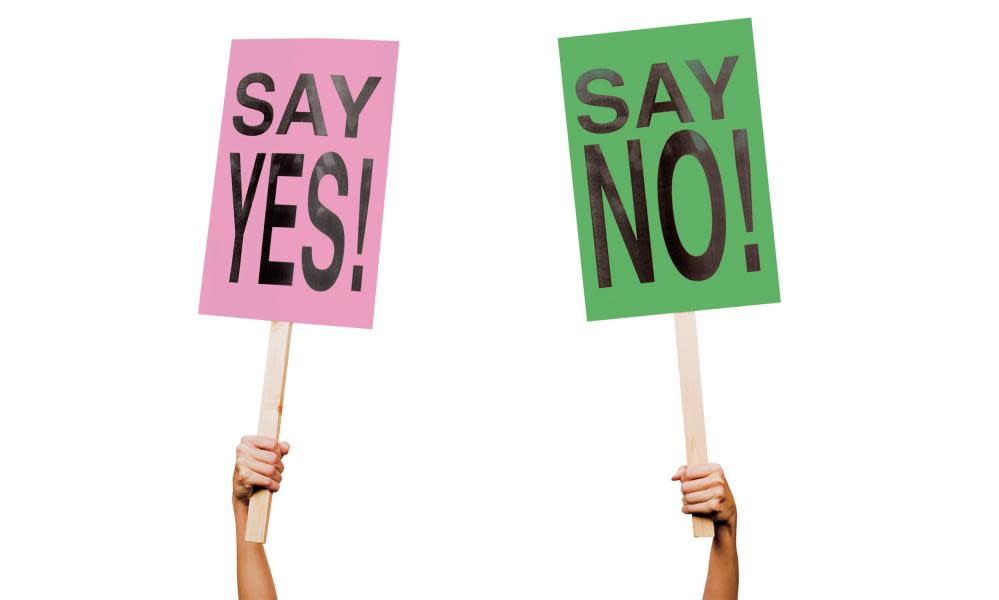In our divided age, nothing makes me happier than sincerely changing my mind

We crucify politicians for their U-turns and often it is justified. Flip-flops, however, are rather different from the utter chaos we’ve seen of late, where it would be more accurate to say government policy is under the influence of centrifugal force. Not so much about-turns but a general vortex of mess.
As easy as it is to slag off politicians and public figures (and I do my fair share), it is a mark of intelligence and good character to be able to have one’s mind changed. I don’t mean shifting opinions for individual gain; watching for whichever way the wind blows, then reneging on a previous position for self-preservation or popularity. I am talking about listening to a cogent argument, and sincerely adjusting one’s outlook.
In school and universities, students practise this art through mooting competitions in borrowed courtrooms and debating clubs, but increasingly we seem to have lost the ability to communicate our disagreements in good faith. Social media is a huge part of this. It is easier to rant and rave behind a screen than it is to behave similarly face to face. I miss sitting with friends in the pub and sharing our takes on current affairs or, once, the pattern of one of our shirts. (I maintain it was fine.)
One of the buzz phrases with most traction in our current times is “culture wars”. I dislike this term for a number of reasons. The first is that much of this “war” is quite simply people fighting against bigotry versus bigots. Black Lives Matter really isn’t a “debate”; they just obviously do. The second is that many of these “wars” are concocted by agents who seek to benefit from keeping people engaged and divided. Our outrage is being monetised.
Related: Who cares what people think? Not me, and it feels great | Hannah Jane Parkinson
All of this is grim, which is why sensible discussion is such a pleasure. A change in conviction isn’t necessarily indicative of fair-weather flimsiness. If a government department realises, “Oh, actually, that might be better”, then I’m all for it, as long as it is done in a way that is honest, not hypocritical. If I read a book and it alters my view of things, or educates me about other perspectives, that is time well spent. I have come to enjoy TV shows friends told me not to give up on; I like being dragged to an exhibition of an artist I didn’t care for and having to admit it was good. Being able to change one’s mind, then, is a positive. But I am happy to consider dissent.


